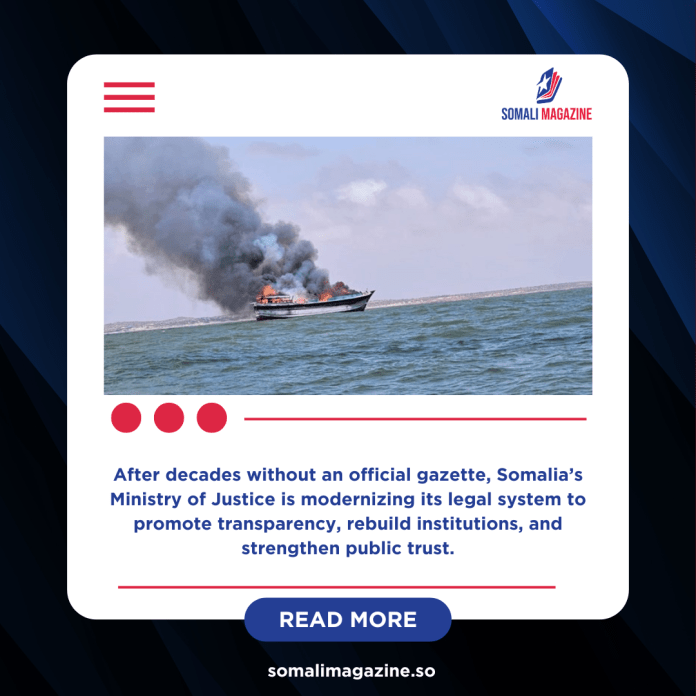Facebook Twitter (X) Instagram Somali Magazine - People's Magazine
After more than twenty years without an official gazette, Somalia is taking a major step to restore public access to its laws by digitizing its legal archives. The initiative, led by the Ministry of Justice, marks an important milestone in rebuilding state institutions, improving transparency, and strengthening trust in the rule of law.
Speaking at the African Gazettes Forum in Djibouti, Deputy Minister of Justice Ahmed Abdirahman Hassan said the long absence of an official gazette since the outbreak of civil war had left the country without a reliable way to record or verify new legislation. “During the war, our laws existed, but no one could consult them,” he said. “Decrees circulated by hand, without any framework, in an atmosphere of legal uncertainty.”
For decades, Somalia’s justice system operated in a state of confusion. Without a formal record of laws, policies were often passed and shared informally, creating inconsistencies and public mistrust. However, in the early 2010s, as the government began rebuilding national institutions, that started to change. The traditional process of drafting, reviewing, and publishing laws—once a standard practice since independence in the 1960s—was revived. According to Hassan, each law is now drafted by a ministry, reviewed by the Ministry of Justice, approved by Parliament, and published in the Official Gazette.
Publication officially resumed in the mid-2010s, with laws made available in Somali, English, and Arabic to ensure accessibility across the country. The current focus, Hassan explained, is to complete the digitization of all legislative archives so that every Somali citizen can access the law directly. “The process is almost complete,” he said. “We want every citizen to have direct access to the law, without an intermediary.”
The digitization project is part of a larger modernization effort supported by the World Bank and regional partners. The program aims to promote transparency, strengthen accountability, and make justice more accessible to citizens. Once completed, it will allow people, researchers, and legal professionals to view laws online, marking a significant shift toward open governance in Somalia.
Somalia has also joined efforts to promote a proposed African Gazettes Charter, which seeks to encourage cooperation among African countries in sharing legal information and fostering open governance. This charter, once adopted, could help countries across the continent improve access to public records and strengthen democratic systems.
Deputy Minister Hassan expressed gratitude to neighboring Djibouti for its support in Somalia’s state-building process. He highlighted the strong cultural, linguistic, and historical ties between the two nations, which have deepened collaboration in areas such as governance and justice. “Djibouti has always stood with us as a brotherly nation,” he said, adding that the partnership reflects a shared commitment to peace and progress in the Horn of Africa.
As Somalia’s Ministry of Justice nears completion of the digital gazette, the move represents not just a technical upgrade, but a powerful symbol of renewal. For a nation once cut off from its legal foundation, bringing laws back into public view—accessible with a few clicks—signals a new chapter of accountability and trust between citizens and their government.

